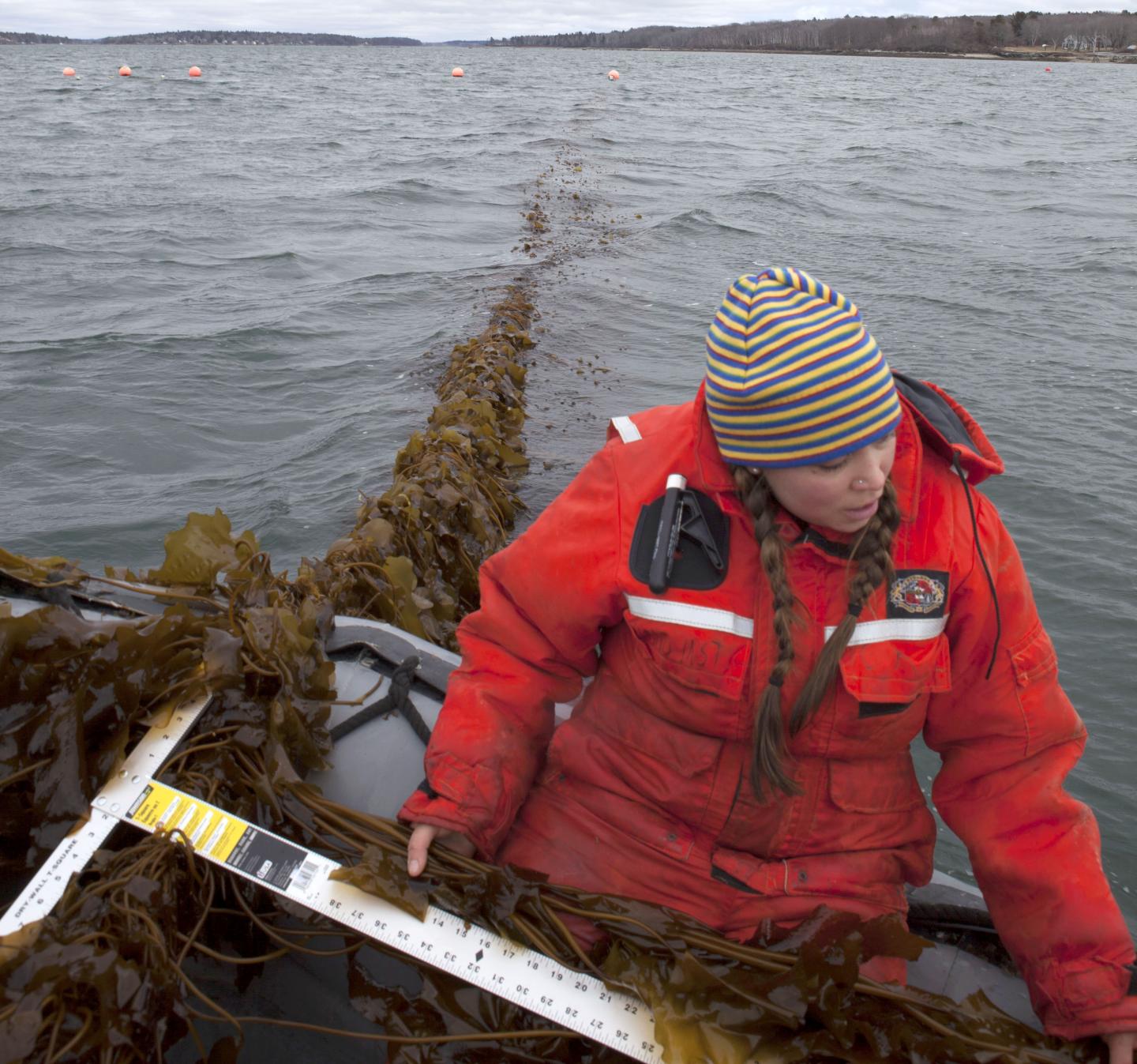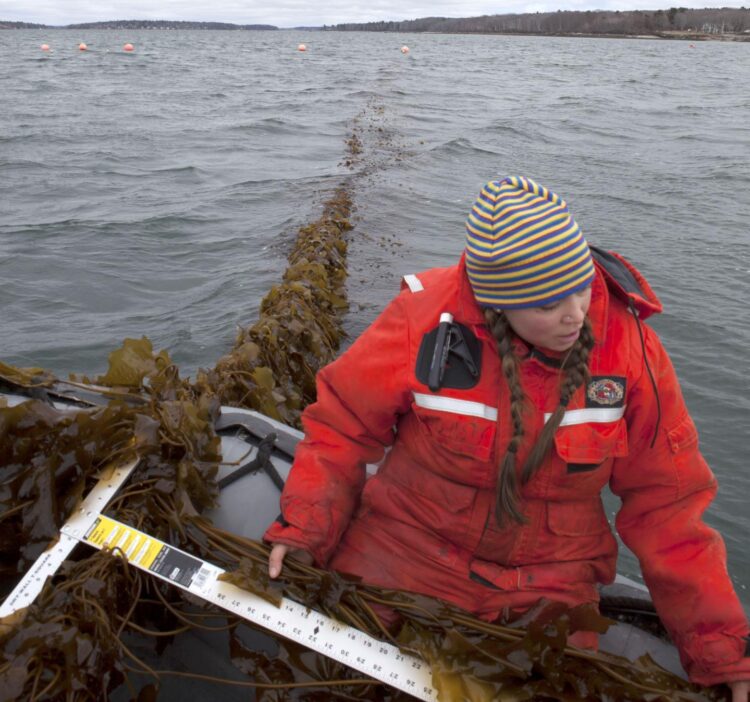
Credit: Photo courtesy of the Island Institute
A nearly $900,000 grant awarded to Bigelow Laboratory for Ocean Sciences will be used to explore how kelp aquaculture can remediate negative effects of climate change. The international project is funded by World Wildlife Fund with support from the Bezos Earth Fund.
The newly funded project will lay the scientific foundations for a new tool to help restore the health and productivity of our oceans.
“This past year has been the warmest on record. At the same time, the global pandemic has exacerbated food insecurity and disrupted Maine’s seafood economy,” said Senior Research Scientist Nichole Price, the project lead. “It is as important as ever to seek pragmatic, profitable solutions to environmental problems that can also yield nutritious food.”
Atmospheric carbon dioxide is accumulating at alarming concentrations due to human activity. Some of this greenhouse gas dissolves into the ocean’s surface waters, making the water more acidic and less habitable for many marine organisms.
Kelp, however, soaks up carbon dioxide like a sponge as it grows. The process can lower the acidity of the surrounding seawater and raise oxygen levels, creating a temporary “halo” area of improved water conditions that can benefit other sea life in the area.
Traditionally, research on how marine photosynthetic organisms mitigate climate change and sequester carbon – referred to as “blue carbon” – has focused on seagrasses, salt marshes, and mangroves.
“The role of kelp aquaculture has been relatively unexplored, despite its great potential to reduce carbon dioxide concentration and seawater acidity with benefits for the shellfish industry and surrounding coastal areas,” said Aurora Martinez Ricart, a Bigelow Laboratory postdoctoral researcher and co-investigator on the project.
Alongside partners from the Island Institute and the University of New Hampshire, Price has been working with mussel and seaweed farmers in Maine to test the potential of growing kelp alongside blue mussels – which are particularly vulnerable to increasing ocean acidity. In protected bays, growing kelp can naturally buffer seawater acidity and create an additional product for harvest in the process.
“Not only does this give us two commercially viable crops, but it also allows us to increase the positive impact on our local ecosystem,” said Matthew Moretti, CEO of Bangs Island Mussels, a Maine farm that has been collaborating with the researchers. “In the face of a rapidly changing environment, this is even more important.”
The new grant from World Wildlife Fund will allow the researchers to expand their partnerships and research into kelp’s positive environmental impacts and potential applications. They will collaborate with new scientists and farmers to monitor water quality during and after the growing season at three kelp farms located in Maine, Alaska, and Norway. The team will track carbon dioxide, oxygen, and nutrient concentrations, as well as basic metrics such as salinity and temperature.
The researchers will use this information to create a computer model of water circulation, kelp growth, and resulting water quality changes that will enable them to better understand farmed kelp’s impact at the study farms, and predict kelp’s effects in other locations.
“Seaweed farming has the possibility to provide not only diversification and profit for struggling working waterfronts, but also critical ecosystem services for coastal marine systems,” said Price. “However, to earn the social acceptance of aquaculture, we need to rigorously document evidence of these water quality benefits across a range of settings.”
Global seaweed harvest is projected to reach more than $30 billion by 2025. Cultivated seaweed grows quickly and requires minimal resources, such as land or freshwater, providing a sustainable food source and making it an attractive crop for rural coastal communities facing dwindling wild-capture fisheries.
The researchers’ peer-reviewed findings will inform farmers, the public, and policymakers. They hope to provide an evaluation of seaweed aquaculture that helps foster positive public interest and develop science-based solutions for the growing industry.
###
Bigelow Laboratory for Ocean Sciences is an independent, nonprofit research institute located in East Boothbay, Maine. From the Arctic to the Antarctic, Bigelow Laboratory scientists use innovative approaches to study the foundation of global ocean health and unlock its potential to improve the future for all life on the planet. Learn more at bigelow.org, and join the conversation on Facebook, Instagram, and Twitter.
Media Contact
Steven Profaizer
[email protected]
Original Source
https:/





